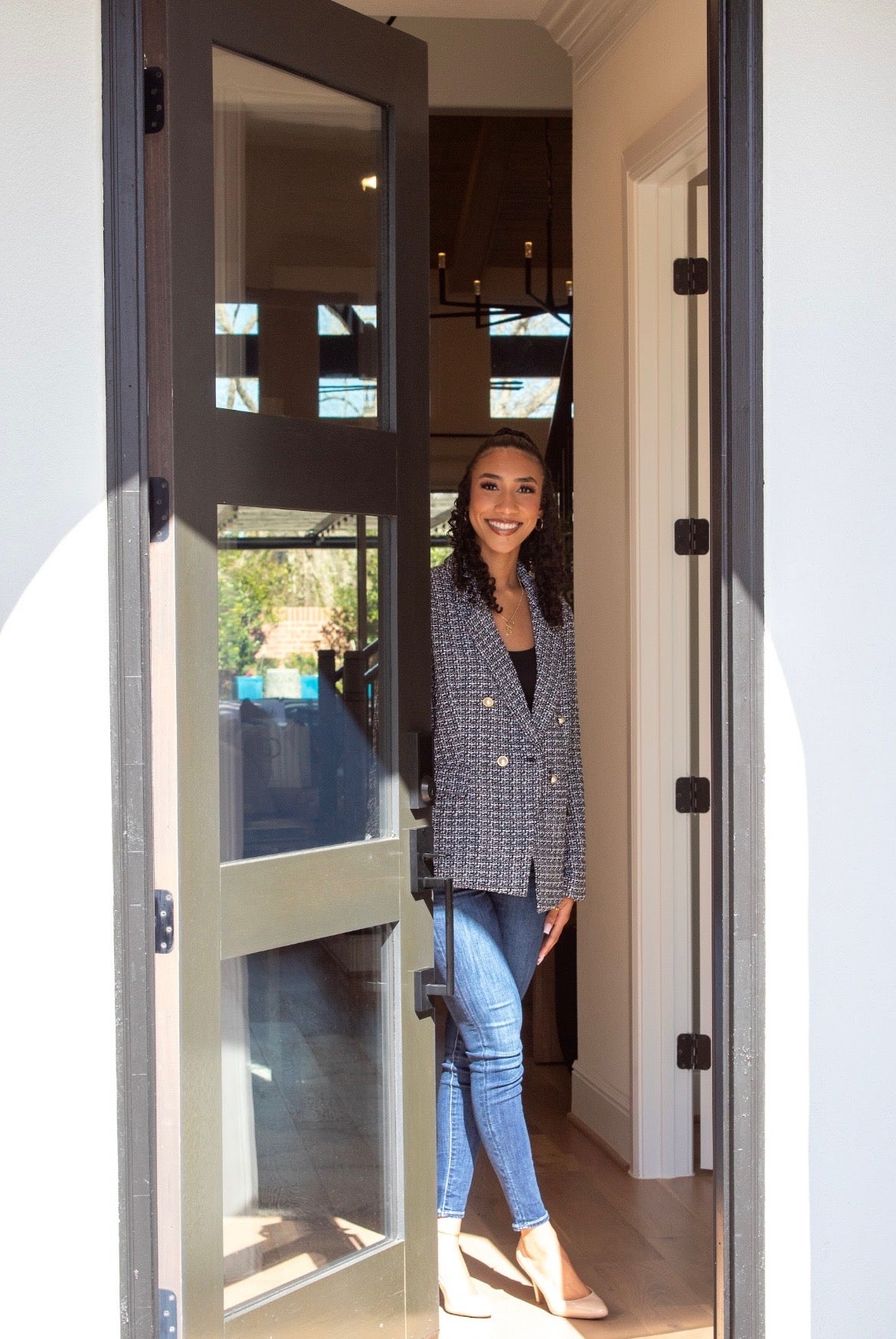
In her final year of college, Taylor G. had a dream: She wanted to buy a home in her hometown of South Bend, Indiana, with her partner.
Taylor and her now-husband both wanted to gain financial independence and become property owners after leaving past relationships that weren’t so healthy financially, she told The Independent. In March 2024, months before graduation and at just 23, Taylor made that dream a reality.
Today, Taylor is working in healthcare and living with her husband in a 2,400-square-foot house, placing her among the relatively small group of young homeowners in the U.S, but one that is rising as young people choose to buy in smaller and cheaper regional cities.
Many in Generation Z — those born between the mid-1990s and the early 2010s — are worried that homeownership is near-impossible as the number of first-time homebuyers in the U.S. drops to a record low.
It’s clear why people feel this way: The average American needs to make a six-figure salary to afford a home, but the average yearly income for someone in their early-to-mid 20s is just over $38,000. Plus, if you’re one of the 13 million Gen-Zers with student loan debt, the dream of homeownership can seem even less attainable.
While it may seem bleak, Gen Zers are still outpacing Millennials and Gen X as first home buyers. The homeownership rates for 19-to-25-year-olds today are higher than the homeownership rates were for Millennials and Gen Xers when they were the same age, according to Redfin.
The Independent spoke with Gen Z homeowners — and one Gen Z realtor — about how they bought their homes, even when the odds are stacked against them.

Location, location, location
Gen-Z homeowners tell The Independent that the low cost of living in their regions helped them secure a home.
Lauren Parks, a 21-year-old realtor working in Houston, Texas, has assisted more than a dozen Gen Z clients, including two who now have the keys to their homes. The average home price is just over $269,000 in the area, according to Zillow.
Parks says she tells her younger clients to look for homes in the suburbs of Houston — particularly in developing neighborhoods — to limit their costs. Parks says it’s a “long-term investment” and that many new homeowners should expect to see their home value grow as the suburb develops.

Taylor says she doesn’t think homeownership would’ve been “realistic” if she didn’t live in South Bend, where the average home costs $187,778, according to Zillow.
Gen Z is split on where they like to live, the data shows. Younger Gen Zers who are 18- to 24-years old are flocking to live in large cities, economist Adam Kamins told USA Today. But older Gen Zers — along with Millenials and some Gen Xers — tend to buy homes outside of major metropolitan areas.
Dakota Scott, a 28-year-old homeowner in Brandon, South Dakota, where the average home price is $394,841, told The Independent that location is what makes or breaks someone becoming a young homeowner.
“Location is definitely going to be the biggest thing to look for, as far as real estate taxes and how much that can affect the home buying process, it's good to be mindful of that,” she told The Independent.

The process can be tricky, but it’s not impossible
The credit approval process for a mortgage can be complicated and stressful for any prospective homebuyer, but especially younger people.
Parks, who makes videos on TikTok giving advice to young homeowners, says that Gen Zers shouldn’t be afraid of the credit approval process. Even people who just graduated from college with little-to-no job history can get approved if they know the tricks involved (although should always be conscious of overcommitting to large debt).
College transcripts and job offer letters are key tools for young people to get approved. Parks told The Independent one of her Gen Z clients submitted their college transcripts and a job offer letter with a $65,000 salary to a lender, and got approved for $180,000.
Parks noted that she sees many homeowners, young and old, being denied loans because they didn’t realize they were behind on their student loan payments, so encourages all prospective homeowners to check their student loan accounts to make sure they’re up to date.
For Scott, the approval process wasn’t nearly as clear-cut. Scott and her now-husband applied for a loan in 2020, but were initially denied due to their credit score. Scott also accepted a commission-based role during the process, which meant she didn’t have the two-year commission history many banks require.

After they paid off some of their debts, Scott’s husband was ultimately approved with a 2.7 percent interest rate. While their monthly payment has fluctuated over the years, they currently pay about $1,500 each month.
Meanwhile, Taylor says her approval process was relatively smooth. The loan is only in her name, she said, because she has better credit than her husband.
She was able to get approved for a mortgage on her $169,000 home with monthly payments just over $1,300 thanks to her good credit, which she attributes to the fact that her parents made her an authorized user on their credit cards when she turned 18.
“I really feel like the stars just kind of aligned for me,” Taylor said. “I just know that personally, I'm the only one in my friend group who is even remotely close to it.
Homeownership is still possible
Taylor, Scott and Parks all say homeownership might be more attainable for some Gen Zers than they think.
“If they have a full-time job or a job that they're making good income at, and are at that point financially where they feel comfortable, I think people would be surprised that they might already qualify,” Taylor said.
Plus there is always the Bank of Parents. Nearly 25 percent of Gen-Z homeowners bought homes with their parents, and many receive assistance from their families for down payments. But Parks says that homeownership is “just as attainable” for Gen Zers who don’t have that financial support, depending where they want to live.
Scott is a prime example, telling The Independent she and her husband bought their home without any assistance from family. However, Scott said many of her homeowner friends did receive some type of help from their family.

Buying a home as a young person may seem insurmountable, but people should approach it as a complicated but achievable goal. “I absolutely think it's doable, if people set their minds to it, but there are a lot of systematic barriers that make it next to impossible,” Taylor said.
Number of first time home buyers hits record low as rentals take over US housing market
Growing number of homeowners who bought in pandemic boomtowns owe more than homes are worth
Owning a home in the US is linked to longer life expectancy, research finds
Less selection, higher prices: How tariffs are shaping the holiday shopping season
Where are the newest residents of America’s 5 biggest cities from?
Hegseth tells lawmakers about plan to detain immigrants at bases in Indiana and New Jersey







